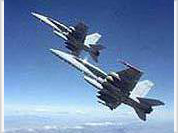Russian businessmen still manage to cheat the state
According to Russia’s Statistics Committee, amount of unprofitable enterprises increased from 38,6% as of the first half-year of 2001 to 46,7% in the first half-year of 2002. At that, profitable enterprises are concentrated mostly in communication (63,3%), trade and catering (64,7%), construction sphere (54,1%) and industry (53,5%). Enterprises of the housing and communal economy, transport and agriculture are the most unprofitable, share of these enterprises makes up 65,3%, 54,5% and 50,7% respectively.
Over the first half-year of 2002, 58,700 organizations (with the exception of small-scale business, agricultural enterprises, banks, insurance and budgetary organizations) gained profit at the rate of 548,4 billion rubles. 51,400 Russian enterprises suffered losses to the sum of 185,4 billion rubles. At that, balancing financial result (profit minus losses) of Russian enterprises over the first half-year made up 363 billion rubles in current prices ($11,5 billion), that is 240,3 billion rubles less than over the same year-ago period (603,3 billion rubles).
Number of unprofitable organizations in Moscow increased over January – May, 2002 from 1,200 to 1,500 as compared with the same year-ago period. Amount of loss gained 18,6% to 10,5 billion rubles. Balancing financial result of average and large-scale enterprises in Moscow made up 116,7 billion rubles over the same period, the Moscow City Statistics informs. Effective debt of Moscow enterprises made up 1 trillion 696,3 billion rubles as of June 1, 2002 (it is 21% less than by June 1, 2001). Outstanding debt of Moscow enterprises made up 173,8 billion rubles, or 10,2% of the total debt.
The mentioned showings disagree with governmental reports about stable and steady growth fixed in Russia’s economy. Why? Does it mean that Russia is slowly going down? This statistics testifies that share of a so-called shadow economy is on rise once again. Unfortunately, the tax reform carried out in the country turned out not so effective as the government expected it to be.
In a word, this means that Russian business still sticks to a defective practice so much popular at the beginning of the 1990s, when businessmen evaded to pay taxes and transferred money to overseas banks. Only enterprises where open business is more profitable (communication, trade, catering and construction spheres) gave up the defective practice. Others still conceal their turnovers and evade to pay taxes. As long as fiscal authorities pay more attention to taxation of large-scale enterprises, many enterprises of a smaller scale remain ignored and serve a source of financing for criminals and corrupt officials.
In other words, at the time when a lion’s share of taxes collected in developed countries falls at average and small-scale business, the heavy taxation burden is laid upon oligarchs in Russia, that in its turn hampers steady and dynamic development. The situation resembles the years of 1997-1998 when Russian oligarchs couldn’t stand the blow and collapsed. Are they ready to face the same blow now?
Kira Poznakhirko PRAVDA.Ru
Translated by Maria Gousseva
Read the original in Russian: https://www.pravda.ru/main/2002/08/23/46148.html
Related links:
Subscribe to Pravda.Ru Telegram channel, Facebook, RSS!



